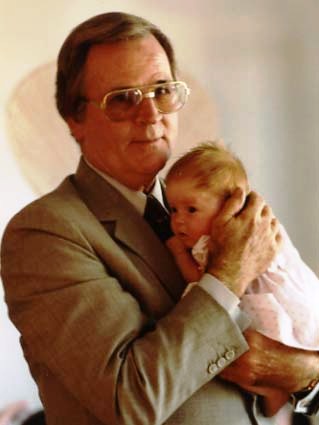Lectures by
Charlie Lutes:
- 28. The Sacred Side of Sex
- 29. Marriage in Life
- 30. Human Emotions
- 31. The Emotional Body
- 32. Values in Life
- 33. Beauty in Life
- 34. You Get Out of Life What You Put Into It
- 35. The Road to Perfection
- 36. Devotion
- 37. Self Mastery
- 38. The Ego
- 39. Birth and Death
- 40. Modes of the Mind
- 41. The Way to Realization
- 42. The Individual and Universal "I"
- 43. The Human as a Light
- 44. God is Love
- 45. Objectives in Life
- 46. Cause and Effect
- 47. Karmic Balance
- 48. A Few Thoughts on Parenting
- 49. Knowledge
- 50. Loyalty in Life
- 51. Thought Forms
- 52. Energy - A Life Force
- 53. What is Liberation?
- 54. The Soul
- Additional Lectures
- Home
Lectures by
Charlie Lutes

There are numerous experiences in life that humans may go through, but everyone has the common experience of birth and death. As long as humans are externalized, birth and death are a recurring experience that goes on for ages. Around and around the wheel of life, humanity slowly moves. Another thing all humans have in common is that they must learn the lessons of life. Different lessons are affixed to different positions on the wheel of necessity, the wheel of birth and death. Human life on this earth is a life of knowledge and experience. The best philosophy taught was to live well in this life and go to the next life free from fear. Almost everyone believed the next or other life was a more perfect extension of this life. Only in the West has fear been implanted in our thinking, regarding death and the life hereafter.
In the Middle Ages in Europe, morbid fear was instilled in the people. Hell, fire, and brimstone were introduced. This was done to get peoples’ attention on the church which taught their members how they could be saved from their eternal damnation. Plato taught that man did not go to hell when he left here; rather, he went to hell when he was born here. The big question that was debated for a long time was, “Does consciousness survived death?” Most people, by instinct, felt that it did. However, the hallmark of this past Age was teaching people how to die. The hallmark of the coming Age is to teach humanity how to live and how to gain eternal life.
The human started out in this world as a divine immortal being, who slipped into mortality and must now move back to his true status; immortality. For much of humanity, for many ages, the grave was the goal of life, and many felt that when they died, they were truly dead. This was because they identified solely with the body, and were completely oblivious to the spirit or the soul.
Spiritism was introduced in the nineteenth century to show that there was something beyond the grave, a continuity of life. It was the only real purpose this teaching served. People who die and leave this world go to another world and are beyond contact. The main problem is that upon entering this life, we have no memory of where we have been prior to our present birth. This memory loss is necessary in order to allow our free will to function so that we may learn from our experiences in this life. Not to learn from our experiences in this life is to step out of this life into darkness. Also, it is not necessary for us to experience everything that happens in the world. We could and should also learn from the experiences of others, yet few do this, especially in youth. Now is the time in evolution when we are to awaken to the truth and facts of life.
The only thing that we can take from this life is our integrity; the lessons we have learned and mastered. We are in this world to learn, and each lesson we have learned is the only thing of value that we can take with us. When we awaken to the spiritual aspect of life and enter a spiritual path, the world and its material nature begins to lose its importance. As one grows in consciousness, this world diminishes; what we thought was real, we now realize was only the shadow on the wall of life. An unenlightened person leaving this world feels the loss of all he thought was real and this becomes his own personal hell. He discovers that he lived a dream in the world of the waking dream. The true purpose of life that must be lived is to be awakened to the truth of life while we are here on earth, and that is spiritual awakening.
We now know that in a universe of motion, we are out of step with life if we do not continue to move forward. Ignorance now becomes a heavier and heavier burden each day. We now know that the lessons remaining must be learned quickly. We are glad to have mastered life in this world and even so in the universe. Before us now stretches all eternity in a life of unbroken bliss consciousness. The grave of life is now only a memory and we now know that the real common experience of humanity was not birth and death, but eternal life.
"As one grows in consciousness, this world diminishes; what we thought was real, we now realize was only the shadow on the wall of life. An unenlightened person leaving this world feels the loss of all he thought was real, and this becomes his own personal hell. He now knows that he lived a dream in the world of the waking dream."
© 2005-2011 by Vincent J. Daczynski. All Rights Reserved.